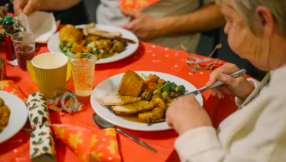Gay 'marriage': why does different have to mean bad?
Whenever a change to the law is being considered that has the potential for significant impact on a nation’s social structures or the way in which future generations think and live, it is always best to err on the side of caution.
So the pace at which the Governments in Westminster and north of the border are trying to push through a change to one of society’s most fundamental institutions – for many, the bedrock institution – is alarming and baffling in equal measure.
For centuries now, marriage the world over has been defined as a union between one man and one woman, with the assumption of childrearing as a natural consequence. It was defined as marriage not because any government named it so, but because that is what it was. It is therefore difficult to understand why we are now faced with the prospect of the meaning of marriage being changed largely as a result of government intervention.
It was inevitable when civil partnerships were legalised in 2004 that people would start applying the terms ‘married’, ‘wedding’, and ‘husband’ or ‘wife’ in relation to them. Yet the essence of a civil partnership remains fundamentally different from that of a heterosexual marriage. There is no getting around it: the natural order of creation – prior to human meddling - made the coming of children into this world the result only of a man and woman coming together (as Christians we can presume God had in mind for children to have a mother and father). There is nothing obscene about recognising or celebrating that.
The very word ‘redefinition’ suggests an improvement of some sort upon the old definition - we redefine something to more accurately reflect what it is intended to stand for, to offer up greater clarification as it were.
Redefining civil partnerships as marriage would do the opposite of that, blurring the distinctions in a way that is not necessarily helpful, not to mention attaching a dimension to a civil partnership that simply cannot exist i.e. natural procreation.
There may be many ways in which marriage and civil partnerships are similar, but it is simply impossible that they can ever be the same. A father is not a mother, no matter how much he fulfils a mother’s role, and a mother is not a father, no matter how much she may fulfil a father’s role.
But being different doesn't have to mean bad or discriminatory. Relationships can be held in equal regard by the state and society, but accommodated by both differently - a single mother may receive different benefits from a married mother but both are respected as mothers.
Have we become so enamoured by this fata morgana of absolute equality that we are becoming blind to the ways in which being distinctive can be positive? Rather than diminish the one or the other, or viewing the question through the lens of ‘discrimination’, is it so inconceivable that calling red, red and yellow, yellow may actually serve to enhance our understanding of what it means to be red and what it means to be yellow? Calling one marriage and the other a civil partnership does nothing to diminish what they have in common – faithfulness, commitment, stability – but it may just do a greater service to what makes them so unique - in all their varying complexities, challenges, and needs.













